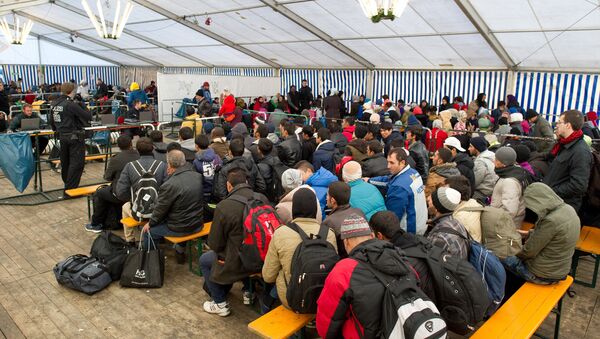In late September and early October, 58 percent of respondents answered 'yes' to the question "Should the German government take in refugees," and 35 percent answered 'no.'
When the same question was asked on February 3 and 4, seven percent fewer Germans (around 5 million less) answered affirmatively, and 41 percent responded negatively.
Yasar Aydin, a German expert in migration from Turkey, told Sputnik Turkish that Germans' initially positive view about taking in asylum seekers has been replaced by rising discontent and protests because of the uncontrolled and increased flow of migrants into Germany, and resulting social and economic problems.
"At the moment, Merkel is against imposing limits on the number of refugees Germany accepts, in her belief that such a measure is unethical," said Aydin, a lecturer at HafenCity University Hamburg who researches migration to Germany.
"She will try and stick to her position when solving the problems that have arisen because of the refugee issue, as she understands that imposing a 'ceiling' on the acceptance of refugees cannot completely stop the migration flow."
"For this reason, Merkel doesn't want to hurry this issue and immediately make a change in the law. However, if the conservative Alternative for Germany (AfD) party, which currently has 10-11 percent support among the population, strengthens its position and pressure on Merkel, the chancellor might decide to re-orientate her politics regarding the migration crisis," Aydin explained.
"Turkey is not a state with a developed system of social support, so the burden the refugees place on the state is much lower in Turkey than in Germany."
"As we know, Germany and other European countries are states which guarantee a high level of social protection for citizens thanks to the authorities' regulation of society and the economy."
"The influx of migrants leads to a serious financial burden for European countries since a significant amount of the taxes that citizens pay will be spent on refugees," Aydin said.
"European countries which take migrants are bound to offer them the state's social resources. Taking into account the scale of the migration flow, in European countries there is a justified worry about the future of their social institutions."




